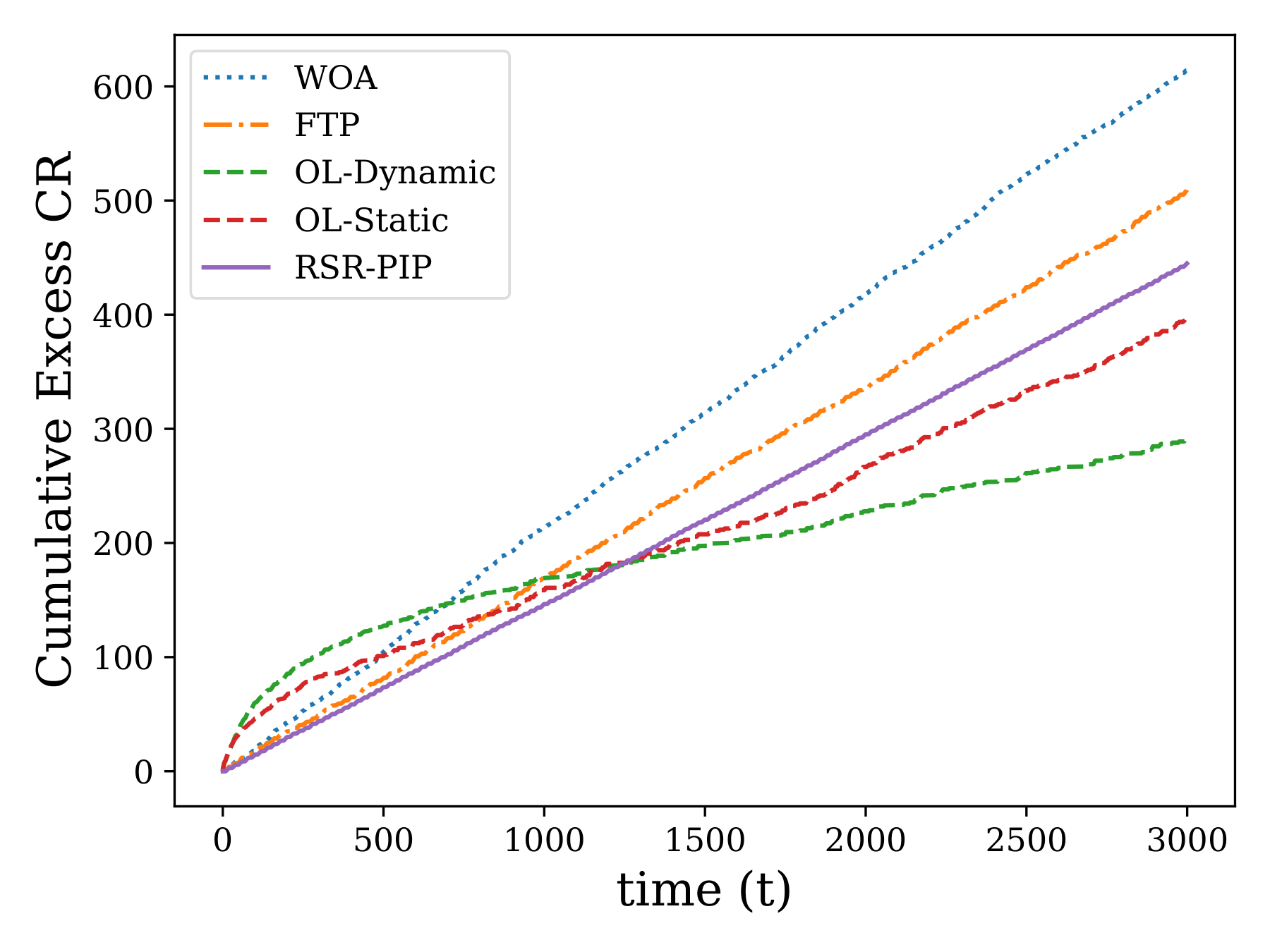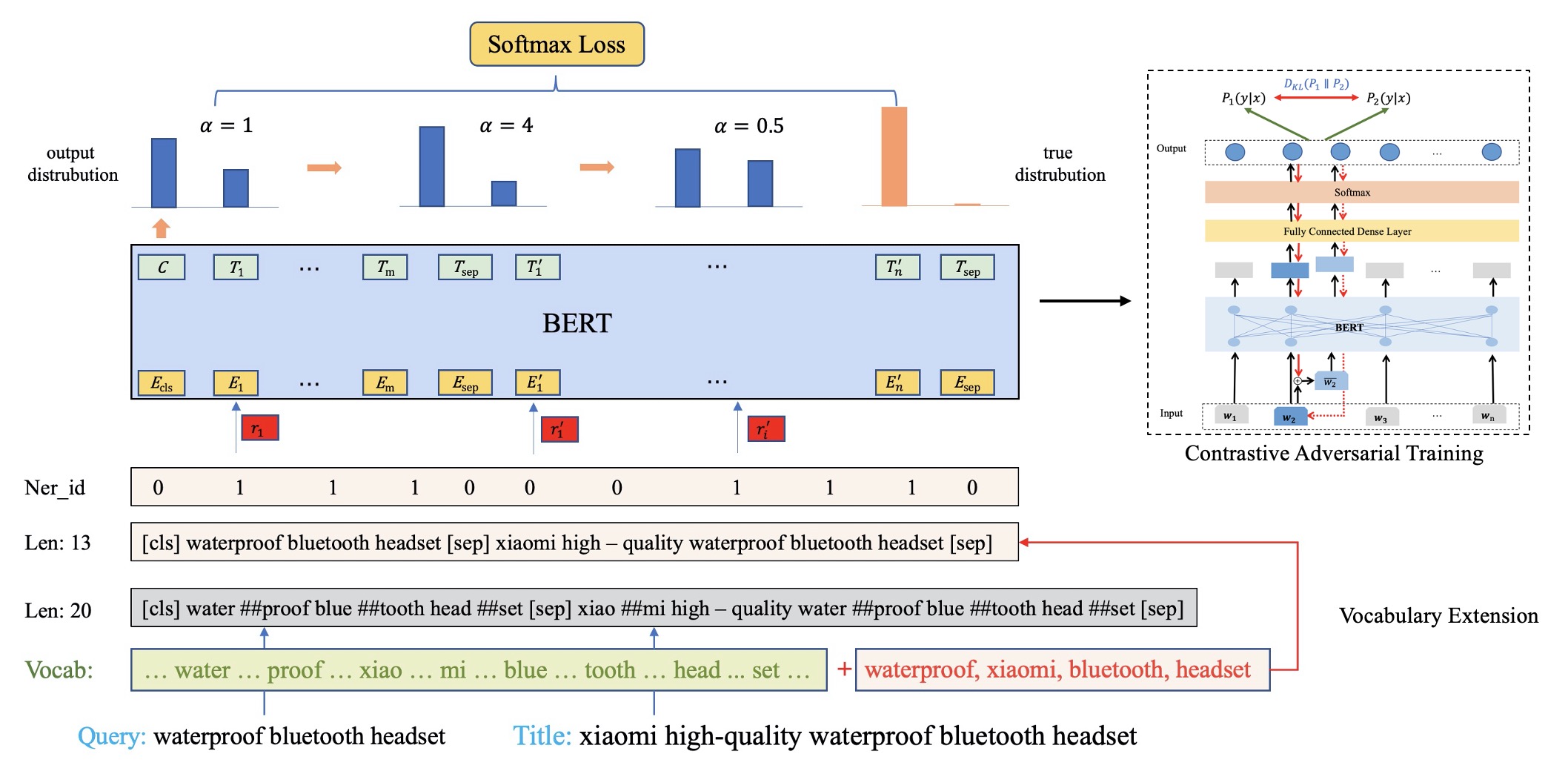Deep Uncertainty-based explore For Index Construction and Retrieval in Recommendation System

0

Sign in to get full access
Overview
- Summarizes a research paper on using deep uncertainty to improve index construction and retrieval in recommendation systems
- Aims to improve recommendation accuracy and user experience by considering uncertainty in the recommendation process
- Proposes a novel uncertainty-based exploration method for index construction and retrieval
Plain English Explanation
Recommendation systems are widely used to suggest products, content, or other items that users may be interested in. However, these systems often struggle with accurately predicting user preferences, leading to suboptimal recommendations.
This research paper introduces a new approach that incorporates deep uncertainty into the recommendation process. The key idea is to explicitly model the uncertainty in the system's understanding of user preferences, and then use this uncertainty information to guide the exploration of new items that may be of interest to the user.
The researchers developed a novel uncertainty-based exploration method for index construction and retrieval. This method aims to strike a balance between exploiting the system's current knowledge to recommend items the user is likely to enjoy, and exploring new items that may be a better fit but are less certain.
By considering uncertainty, the system can make more informed decisions about which items to recommend, leading to improved recommendation accuracy and a better user experience. This approach can be especially beneficial in scenarios where user preferences are complex or rapidly changing, as the system can adapt its recommendations accordingly.
Technical Explanation
The researchers propose a deep uncertainty-based exploration method for index construction and retrieval in recommendation systems. The key components of their approach are:
-
Uncertainty Modeling: The system uses a deep neural network to model the uncertainty in its understanding of user preferences. This uncertainty information is then used to guide the recommendation process.
-
Uncertainty-based Exploration: The researchers develop a novel exploration strategy that balances exploitation of the system's current knowledge with exploration of new items that may be a better fit for the user. This is achieved by incorporating the uncertainty information into the item selection process.
-
Index Construction: The system constructs an index of items that can be efficiently retrieved during the recommendation process. The index takes into account the uncertainty information to ensure that a diverse set of items is included, improving the overall recommendation quality.
-
Retrieval: During the recommendation process, the system retrieves a set of relevant items from the index, using the uncertainty-based exploration strategy to balance exploitation and exploration.
The researchers evaluate their approach on several benchmark datasets and demonstrate that it outperforms traditional recommendation methods in terms of recommendation accuracy and user experience.
Critical Analysis
The researchers provide a thoughtful discussion of the potential limitations and areas for further research in their paper:
-
Scalability: The proposed approach may face challenges in scaling to very large item catalogs or user bases, as the uncertainty modeling and exploration strategies may become computationally expensive. Further research is needed to address this issue.
-
Interpretability: The deep neural networks used for uncertainty modeling can be complex and difficult to interpret. Providing more transparency into the system's decision-making process could be valuable for users and system administrators.
-
Robustness: The researchers note that the performance of their approach may be sensitive to the quality of the uncertainty estimates provided by the neural network. Further investigation is needed to understand the impact of uncertainty estimation errors on the overall system performance.
-
Generalization: The researchers evaluate their approach on specific benchmark datasets, but it's unclear how well it would generalize to other recommendation domains or real-world scenarios with different user and item characteristics.
Overall, the researchers have presented a promising approach that incorporates deep uncertainty into the recommendation process, with the potential to improve both recommendation accuracy and user experience. The critical analysis highlights several areas for further research and development to address the identified limitations and strengthen the practical applicability of the proposed method.
Conclusion
This research paper introduces a novel deep uncertainty-based exploration approach for index construction and retrieval in recommendation systems. By explicitly modeling the uncertainty in the system's understanding of user preferences, the researchers develop a more informed exploration strategy that balances exploitation and exploration, leading to improved recommendation accuracy and user experience.
The technical details of the proposed method, including uncertainty modeling, index construction, and retrieval, are presented, and the researchers provide a thoughtful discussion of the potential limitations and areas for further research. Overall, this work represents an important step forward in incorporating uncertainty into the recommendation process, with the potential to enhance the effectiveness and robustness of recommendation systems in various domains.
This summary was produced with help from an AI and may contain inaccuracies - check out the links to read the original source documents!
Related Papers


0
Deep Uncertainty-based explore For Index Construction and Retrieval in Recommendation System
Xin Jiang, Kaiqiang Wang, Yinlong Wang, Fengchang Lv, Taiyang Peng, Shuai Yang, Xianteng Wu, Pengye Zhang, Shuo Yuan, Yifan Zeng
In recommendation systems, the relevance and novelty of the final results are selected through a cascade system of Matching -> Ranking -> Strategy. The matching model serves as the starting point of the pipeline and determines the upper bound of the subsequent stages. Balancing the relevance and novelty of matching results is a crucial step in the design and optimization of recommendation systems, contributing significantly to improving recommendation quality. However, the typical matching algorithms have not simultaneously addressed the relevance and novelty perfectly. One main reason is that deep matching algorithms exhibit significant uncertainty when estimating items in the long tail (e.g., due to insufficient training samples) items.The uncertainty not only affects the training of the models but also influences the confidence in the index construction and beam search retrieval process of these models. This paper proposes the UICR (Uncertainty-based explore for Index Construction and Retrieval) algorithm, which introduces the concept of uncertainty modeling in the matching stage and achieves multi-task modeling of model uncertainty and index uncertainty. The final matching results are obtained by combining the relevance score and uncertainty score infered by the model. Experimental results demonstrate that the UICR improves novelty without sacrificing relevance on realworld industrial productive environments and multiple open-source datasets. Remarkably, online A/B test results of display advertising in Shopee demonstrates the effectiveness of the proposed algorithm.
Read more8/7/2024


0
Modeling User Intent Beyond Trigger: Incorporating Uncertainty for Trigger-Induced Recommendation
Jianxing Ma, Zhibo Xiao, Luwei Yang, Hansheng Xue, Xuanzhou Liu, Wen Jiang, Wei Ning, Guannan Zhang
To cater to users' desire for an immersive browsing experience, numerous e-commerce platforms provide various recommendation scenarios, with a focus on Trigger-Induced Recommendation (TIR) tasks. However, the majority of current TIR methods heavily rely on the trigger item to understand user intent, lacking a higher-level exploration and exploitation of user intent (e.g., popular items and complementary items), which may result in an overly convergent understanding of users' short-term intent and can be detrimental to users' long-term purchasing experiences. Moreover, users' short-term intent shows uncertainty and is affected by various factors such as browsing context and historical behaviors, which poses challenges to user intent modeling. To address these challenges, we propose a novel model called Deep Uncertainty Intent Network (DUIN), comprising three essential modules: i) Explicit Intent Exploit Module extracting explicit user intent using the contrastive learning paradigm; ii) Latent Intent Explore Module exploring latent user intent by leveraging the multi-view relationships between items; iii) Intent Uncertainty Measurement Module offering a distributional estimation and capturing the uncertainty associated with user intent. Experiments on three real-world datasets demonstrate the superior performance of DUIN compared to existing baselines. Notably, DUIN has been deployed across all TIR scenarios in our e-commerce platform, with online A/B testing results conclusively validating its superiority.
Read more8/9/2024


0
Online Algorithms with Uncertainty-Quantified Predictions
Bo Sun, Jerry Huang, Nicolas Christianson, Mohammad Hajiesmaili, Adam Wierman, Raouf Boutaba
The burgeoning field of algorithms with predictions studies the problem of using possibly imperfect machine learning predictions to improve online algorithm performance. While nearly all existing algorithms in this framework make no assumptions on prediction quality, a number of methods providing uncertainty quantification (UQ) on machine learning models have been developed in recent years, which could enable additional information about prediction quality at decision time. In this work, we investigate the problem of optimally utilizing uncertainty-quantified predictions in the design of online algorithms. In particular, we study two classic online problems, ski rental and online search, where the decision-maker is provided predictions augmented with UQ describing the likelihood of the ground truth falling within a particular range of values. We demonstrate that non-trivial modifications to algorithm design are needed to fully leverage the UQ predictions. Moreover, we consider how to utilize more general forms of UQ, proposing an online learning framework that learns to exploit UQ to make decisions in multi-instance settings.
Read more6/5/2024


0
Robust Interaction-based Relevance Modeling for Online E-Commerce and LLM-based Retrieval
Ben Chen, Huangyu Dai, Xiang Ma, Wen Jiang, Wei Ning
Semantic relevance calculation is crucial for e-commerce search engines, as it ensures that the items selected closely align with customer intent. Inadequate attention to this aspect can detrimentally affect user experience and engagement. Traditional text-matching techniques are prevalent but often fail to capture the nuances of search intent accurately, so neural networks now have become a preferred solution to processing such complex text matching. Existing methods predominantly employ representation-based architectures, which strike a balance between high traffic capacity and low latency. However, they exhibit significant shortcomings in generalization and robustness when compared to interaction-based architectures. In this work, we introduce a robust interaction-based modeling paradigm to address these shortcomings. It encompasses 1) a dynamic length representation scheme for expedited inference, 2) a professional terms recognition method to identify subjects and core attributes from complex sentence structures, and 3) a contrastive adversarial training protocol to bolster the model's robustness and matching capabilities. Extensive offline evaluations demonstrate the superior robustness and effectiveness of our approach, and online A/B testing confirms its ability to improve relevance in the same exposure position, resulting in more clicks and conversions. To the best of our knowledge, this method is the first interaction-based approach for large e-commerce search relevance calculation. Notably, we have deployed it for the entire search traffic on alibaba.com, the largest B2B e-commerce platform in the world.
Read more6/5/2024